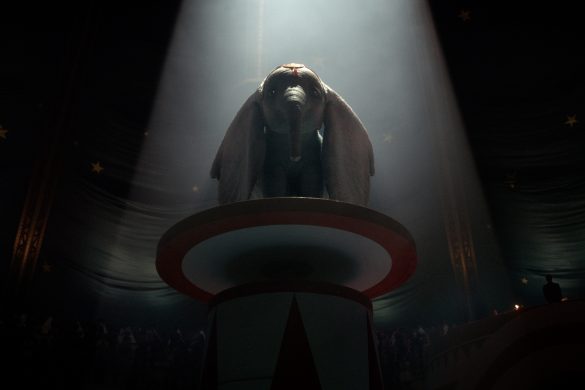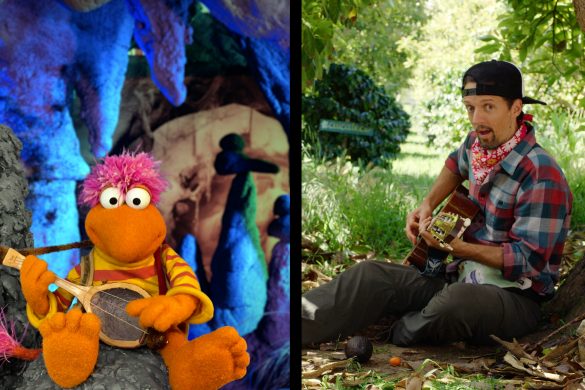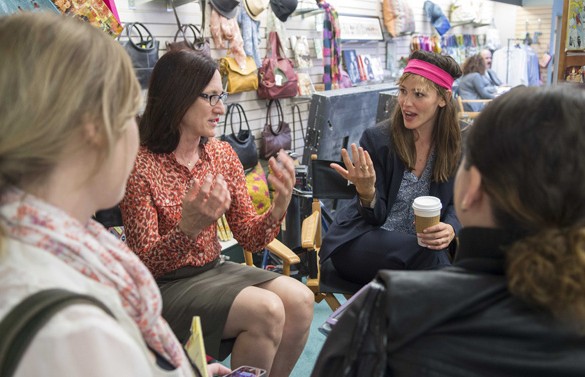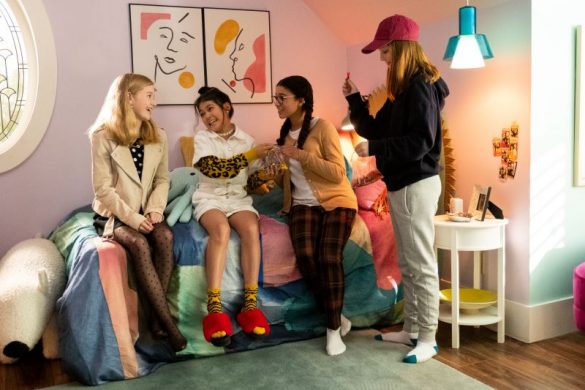“Sound of Metal,” Darius Marder’s directorial debut, is so much more than an appreciation for the art of sound design and editing. It’s a feature film that will change one’s perception of viewing deafness not as a disability but as a state of mind. Though the film expresses a lot of the frustrations and struggles of what one goes through as they learn how to adapt to a sudden loss of hearing through Riz Ahmed’s powerful performance, Marder’s decisions to use closed captioning throughout the film brings us a better understanding of what the deaf community experiences on a daily basis.
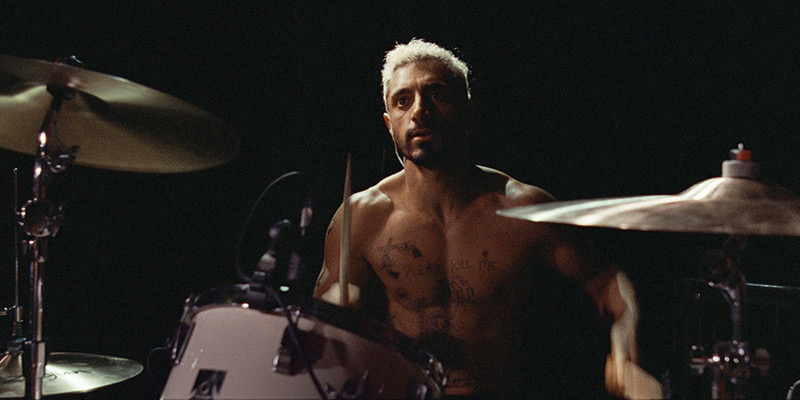
“Sound of Metal” centers on Ruben (Ahmed), a former drug addict now punk drummer who is on rock tour with his girlfriend Lou (Olivia Cooke). But his world comes to a halt when he suddenly goes deaf. Though it is not clear why his hearing is deteriorating rapidly – the film hints at either the music he plays or an autoimmune disease – if he doesn’t stop what he is doing, he will lose his sense of hearing entirely. So, Lou calls in a favor to have Ruben put into a program specially designed for the deaf community. There he meets Joe, the program’s manager, so he tells him that he needs to isolate himself from the outside world to adjust to his new way of life. That’s not an easy thing to do for a person who has built his life on music and around the person he loves. And though he seems to be adjusting accordingly, his withdrawals put him at a crossroads to choose between accepting deafness as a state of mind or a condition remedied with costly implant surgery.
So much of the film revolves around Ahmed’s ability to give us a performance that has us believe Ruben’s struggles with adapting to his deafness and how his choices will impact his life. This isn’t just something that can be described in the subtitles. Marder’s decision to use closed captioning is an important one for the audience as it gives those who have hearing to see the film as a deaf person would see it. So, there are audio descriptions in the film seen in the selection of music to simple everyday tasks. But this isn’t a constant thing that happens throughout the film. Not everything is mute. Instead, the film switches back and forth from the world of sound to something that is distorted, muffled, or completely silent.
This segues into a different kind of addiction for Ruben. “Sound of Metal” first introduces deafness as something that Ruben wants to be cured. However, when he enters the program, Joe tries to instill that it’s not so much of a disability as it is a state of mind. One aspect of the treatment in this program sees Ruben go into a room and sit in silence. If he cannot do that, then he has to write how he feels. Other parts of the program see Ruben learning how to adapt to his new way of life by going to school for the deaf.
The process is meant to help Ruben to find that peace and come to terms with his deafness. But just like any addict, he falls into bad habits. He wants his old life back and completely ignores the opportunity to start his life with a clean slate. It’s at that moment “Sound of Metal” reveals itself to be a film more about life than it is about being deaf. And that all comes to the surface when he makes a life-changing decision.
And Ahmed can project those frustrations and struggles effortlessly. Ruben is going through a great deal of frustration as he is getting acclimated to his loss of hearing. He projects a kind of rage that is painful to watch. It’s not so much violent as it is just angry at the situation. He may be a bit rebellious, but the program allows him to see that deafness is exactly as Joe described earlier. This kind of development makes the character more human. And it leans in further into the themes of life when we get to see it from Lou’s perspective. She wants what’s best for him, including calling their sponsor, much to Ruben’s objections, to help him go into Joe’s program.
Cooke makes the most of her limited screen time by also revealing Lou’s frustrations over Ruben’s stubbornness. Though the two aren’t in a toxic relationship, she knows that if they do not confront the situation by getting Ruben the help he needs, it will only lead to both of them relapsing. And as much as Ruben tries to convince that he can work around the deafness and still go on tour, the deafness is something that will help him come to grips with this new identity.
Though “Sound of Metal” makes a few interesting turns towards a prolonged third act, it provides an insightful examination of Ruben’s decision. And the performance isn’t meant to be polarizing, but it asks that audience to empathize because not everyone’s experience with deafness is the same.
To say that “Sound of Metal” is about living with deafness would be an oversimplification of Marder’s film. Underneath that lies a story about addiction and how people come to terms with the conditions of their current situation. The film’s use of sound brings us into a community that has not been portrayed in the media with such nuance and reverence. Marder’s decision to have a lack of closed caption during key scenes not only allows us to see what Ruben is experiencing; it gives us a better understanding of what the deaf community experiences. More importantly, it takes us on a different kind of journey about overcoming addiction and coming to terms with a different way of life.
Sound of Metal opens in select theaters on November 20, 2020. It will then be available to stream exclusively on Amazon Prime on December 4, 2020.


